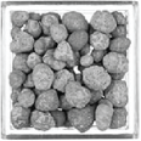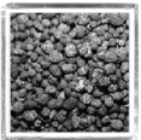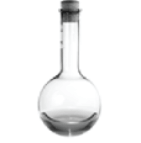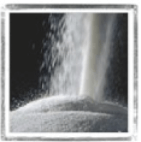Next Topic
Select SDGs to find out how we are taking action in support of the UN Substinable Development Goals
2023 ISRAEL CHEMICALS LTD. | ALL RIGHTS RESERVED






Phosphate fertilizer is necessary for healthy plants and agricultural production.
ICL’s subsidiary, ICL Rotem, mines phosphate and processes it at Rotem and Zafir (Oron- Zin) in the Negev Desert. The phosphate rock is processed mainly, in plants located at Mishor Rotem, into fertilizers (phosphorus is a vital plant nutrient), as well as numerous other products used by the food, cosmetics, dental products, detergents, and light-emitting diodes (LED) industries, among others. Phosphorus is important for both plants and animals. It helps with the formation of bones and teeth, and for plants it is important in photosynthesis, cell division and development of new tissue.
2 Mining Sites
3 Beneficiation Plants
12 Production Plants
1,200 Direct Employees
Developing Circular Economy Initiatives at ICL Rotem
While ICL Rotem’s core activity is producing phosphate-based products from phosphate rock, ICL has taken upon itself to reuse resources, by-products and waste streams for new products .
Read MoreICL Rotem mines phosphate rock from phosphate deposits in the Negev desert in accordance with two mining concessions from the State of Israel which were valid until the end of 2021. In December 2021, the Ministry of Energy granted ICL Rotem an extension to a unified concession (which includes all Rotem’s mining fields) for an additional three years, until the end of 2024. In addition, ICL Rotem has two lease agreements in effect until 2024 and 2041, and an additional lease agreement related to the Oron plant.
ICL’s existing phosphate mines in the Negev desert hold limited reserves of phosphate rock designated for phosphoric acid production. ICL is therefore promoting mining activities in the Barir Field to enable the continuation of its mining activities, following the depletion of existing reserves.

The Campanian (Upper Cretaceous period) phosphate rock deposits in Israel are part of the Mediterranean phosphate belt extending from Turkey, through Jordan and Israel, and westward through Egypt, Tunisia and Morocco. Mining in the Negev utilizes conventional open pit or quarrying methods, using drilling and blasting where necessary, hydraulic excavators and rigid freight trucks or bulldozers with rippers for overburden removal and front-end loaders and trucks for mining phosphate. ICL is careful to minimize the impact of its mining activities through responsible planning that allows for continuous reclamation of depleted mine blocks, alongside ongoing mining operations.
Phosphate rock from the Rotem mine is transported by truck to Mishor Rotem, where ICL Rotem operates plants to process sulphuric acid, green phosphoric acid, white phosphoric acid, superphosphate, granular fertilizer and MKP. In addition, it operates an oil shale combustion plant to produce electricity and steam, which will be replaced with natural gas in 2022. ICL also operates beneficiation plants at Oron which produce phosphate for white phosphoric acid. The remainder of the raw material is sold to other phosphoric acid and fertilizer producers .
The mining activity at Zin was discontinued in mid-2020, while the mine restoration at the site continues. Phosphate rock was transported from Zin, which ceased operations in 2020 and the transfer of the remaining inventory ended in early 2021, to Rotem for further processing.
In 2020, an application for a class action was filed against the Company, according to which, discharge, leakage and seepage of wastewater from Rotem's Zin site, allegedly caused various environmental hazards to the Zin stream, which resulted in damages. For future information, see Note 18 to our Audited Financial Statements.
ICL Rotem adheres to a long-term strategy for planning and managing its mining of phosphate deposits in the Negev. This policy includes conducting comprehensive geological surveys, examining alternatives to mining, defining long-term goals for mining, and sustainable mining.
Read More
ICL’s subsidiary, ICL Rotem, has been surface mining phosphate at Rotem and Zafir (Oron- Zin) in the Negev Desert for more than sixty years. Mining in the Negev utilizes conventional open pit or quarrying methods. ICL Rotem is careful to minimize impacts of its mining activities through responsible planning that allows for continuous reclamation of depleted mine blocks alongside mining operations.
Our existing phosphate mines in the Negev desert hold limited reserves of phosphate rock designated for phosphoric acid production. The Company is working to promote a plan for mining phosphates in Barir field, which is located in the southern part of the South Zohar deposit in the Negev Desert in Israel.
Failure to obtain such approval or a significant delay in receiving it, or in finding alternative sources of phosphates in Israel, will have a significant negative impact on our future mining reserves and business.
For more information on the Barir field issue and related legal proceedings, see Note 18(b) – concessions, leases and permits, in ICL’s 2021 Annual Report.
In 2017 ICL Rotem experienced a significant environmental incident in which approximately 100,000 cubic meters of acidic phosphogypsum liquid were released into the surrounding environment as a result of a breach in a detainment pond. The Company took immediate action to stop the flow out of the breached pond, in full coordination with the Ministry of Environmental Protection and the Israel Nature and Parks Authority (INPA). Following a multi-year cleanup and monitoring effort in which ICL took a leading role, the creek was declared safe for hikers and re-opened to the public by the Israeli authorities in June 2020.
Read More
